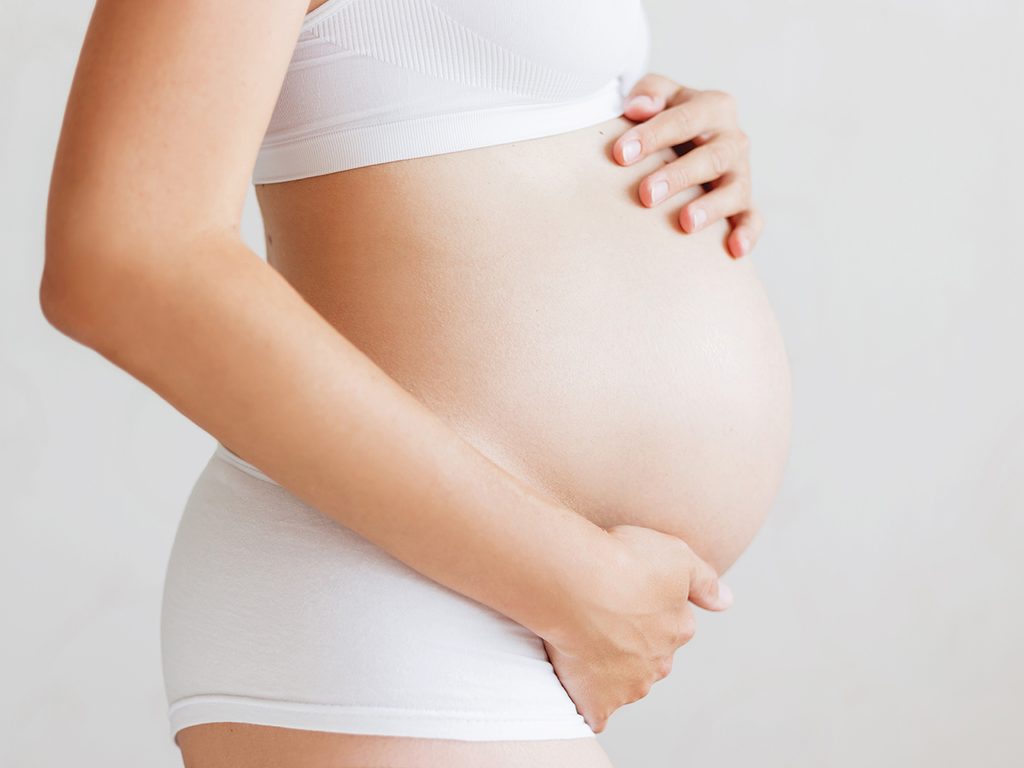What You Need to Know if You’re Delaying Pregnancy During Covid

Not ready to bring a little one into this world? You’re not alone. Here, a fertility doctor shares what to do now to prepare for when you're ready.
When the pandemic hit, Twitter was full of suggestions for the generation of babies bound to be conceived during the boredom of lockdown: Corona babies, Gen C., Coronials, Baby Zoomers. But as the months went on, it became clear that the opposite of a baby boom was more likely to happen.
From employment concerns to fear of not having access to adequate in-person natal care, it’s no surprise people are daunted by the idea of having a baby right now. But delaying getting pregnant out of fear of the present can also increase anxiety about fertility in the future.
So, we reached out to Caitlin Dunne, a fertility doctor at Pacific Centre for Reproductive Medicine in Vancouver, for her recommendations for anyone who doesn’t want a Coronial but wants kids in the future.
Pay attention to your stress levels
“Stress isn’t good for fertility,” says Dunne, “and then infertility leads to more stress, which becomes a destructive cycle.” So, it’s a good time to introduce stress management techniques into your life, if you’re not doing so already. Dunne recommends exercising regularly (30-60 minutes per day), practicing mindfulness and/or meditation, and if you still feel stressed, some alternative therapies, like acupuncture, may help you relax.
(Related: Why Exercise Can Be the Most Effective Way to Relieve Stress)
Ask yourself why you’re postponing having a baby
“Obviously having a baby is a deeply personal decision so everyone has to consider their own lives in the context of Covid-19,” says Dunne. If the reason is the fear of contracting the virus while pregnant, it may be comforting to know that new studies show Covid-19 does not lead to birth defects. “The New England Journal of Medicine recently published an article supporting women’s autonomy to conceive during the pandemic,” says Dunne. “Although pregnant women can still contract Covid-19, just like anyone else, it appears to be very rare that it would cross to the baby in utero.”
Find out your ovarian reserve—especially if you’re over the age of 35
There is a risk for people over 35 delaying pregnancy, says Dunne. The number of eggs a woman has declines throughout life, and after 35, it can be harder to get pregnant naturally. A blood test called Anti-Müllerian hormone (AMH) can tell you how many eggs you have left, which is also known as your “ovarian reserve.”
A good number of eggs depends on your age. “If we’re talking about a woman who’s over 35, or a woman who is younger but has egg numbers that are on the lower side for her age, then we have to have a more detailed conversation about the risks of delaying pregnancy,” says Dunne. For that reason, she recommends not interpreting the results on your own but seeking the expertise of a doctor.
(Related: 10 Facts Every Woman Needs to Know About Her Fertility)
Talk to a fertility doctor if you’re concerned.
If you have any worries about your fertility, it may help to see a specialist. For example, if you have an abnormal menstrual cycle (with “normal” defined as between 21 and 35 days) they may prescribe medication to help regulate it, and determine if any lifestyle factors are to blame. “I’d want to check the thyroid, body weight, check for diabetes, and of course check the fallopian tubes,” says Dunne. Fallopian tubes can get blocked if a woman has had pelvic surgery, endometriosis, or a previous chlamydia infection.
(Related: Why You Should Be Tracking Your Menstrual Cycle)
Do what you can to boost your fertility while you wait
Dunne recommends every woman take a prenatal vitamin or a multivitamin with 1mg of folic acid. “It’s probably a good thing for everybody of childbearing age to take one because that folic acid will build up in your blood over two or three months,” says Dunne. “That’s important when pregnant — folic acid helps the baby’s spine form properly in the first 28 days of life.” She also suggests taking vitamin D since we don’t get enough sunlight in Canada. As for lifestyle changes, Dunne recommends avoiding smoking, vaping, and drinking heavily, and maintaining a healthy body weight. “And trust your instinct, if something doesn’t feel right then go see your doctor to check-in.”
(Related: Adaptogens for Fertility: What You Need to Know)
If you have a male partner, his fertility should be measured, too
“Male factor infertility remains the number one single cause of infertility,” says Dunne, “so it’s important to consider both the man and the woman’s history when deciding how urgently things should be investigated.” Maintaining a healthy body weight, avoiding excess alcohol consumption (no more than 10 to 14 drinks per week), and avoiding smoking and vaping can all help with male fertility, says Dunne. Another thing to avoid: Excessive heat. Sitting in a hot tub or sauna for a prolonged period of time can be harmful to sperm as well.




